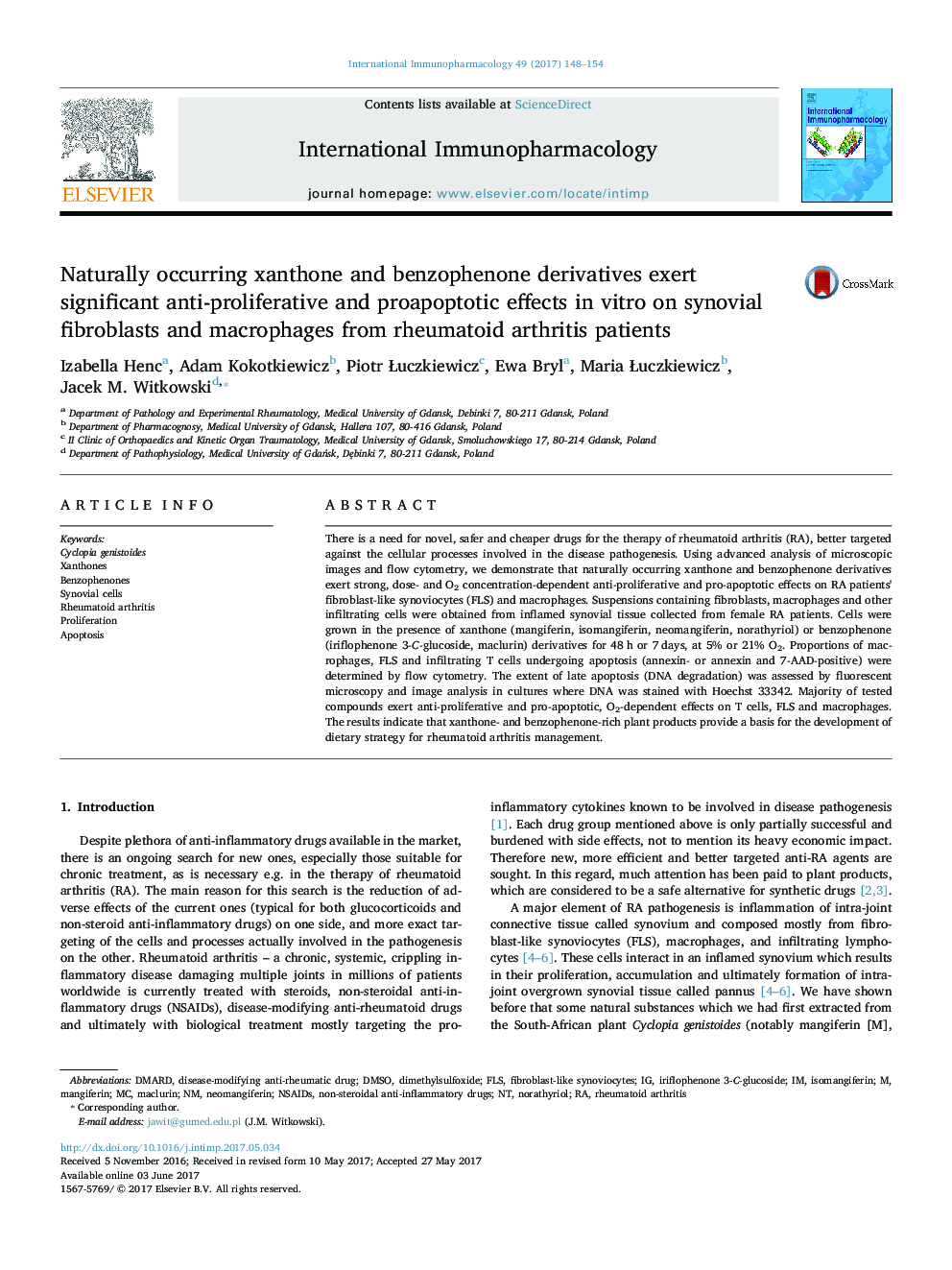| Article ID | Journal | Published Year | Pages | File Type |
|---|---|---|---|---|
| 5555442 | International Immunopharmacology | 2017 | 7 Pages |
â¢Cyclopia genistoides compounds affect the survival of rheumatoid synovial cells.â¢These compounds variably induce apoptosis in T cells, macrophages and fibroblasts.â¢Strength of these effects depends on O2 concentration, suggesting the role of ROS.â¢Activities of C. genistoides xanthones and benzophenones may have use in RA therapy.
There is a need for novel, safer and cheaper drugs for the therapy of rheumatoid arthritis (RA), better targeted against the cellular processes involved in the disease pathogenesis. Using advanced analysis of microscopic images and flow cytometry, we demonstrate that naturally occurring xanthone and benzophenone derivatives exert strong, dose- and O2 concentration-dependent anti-proliferative and pro-apoptotic effects on RA patients' fibroblast-like synoviocytes (FLS) and macrophages. Suspensions containing fibroblasts, macrophages and other infiltrating cells were obtained from inflamed synovial tissue collected from female RA patients. Cells were grown in the presence of xanthone (mangiferin, isomangiferin, neomangiferin, norathyriol) or benzophenone (iriflophenone 3-C-glucoside, maclurin) derivatives for 48Â h or 7Â days, at 5% or 21% O2. Proportions of macrophages, FLS and infiltrating T cells undergoing apoptosis (annexin- or annexin and 7-AAD-positive) were determined by flow cytometry. The extent of late apoptosis (DNA degradation) was assessed by fluorescent microscopy and image analysis in cultures where DNA was stained with Hoechst 33342. Majority of tested compounds exert anti-proliferative and pro-apoptotic, O2-dependent effects on T cells, FLS and macrophages. The results indicate that xanthone- and benzophenone-rich plant products provide a basis for the development of dietary strategy for rheumatoid arthritis management.
Graphical abstractDownload high-res image (227KB)Download full-size image
